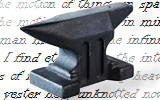
15 October 1936 ― 23 November 2012
Obituary in the Brooklyn Eagle Wikipedia entry
Author of thirteen books of poetry and essays
Founder editor of The Smith (1964 – 1974)
Founder director of The Smith Press (1964 – 2012)
Co-founder and twice chair of COSMEP
Founder and director of the Generalist Association and the Generalist Papers
Laureate of the Pen Center’s Medwick Award (1976)
Laureate of the Small Press Center’s Poor Richard Award (1993)
BELOVED LOYAL FRIEND
Seven Poems by Harry Smith
Facts of the Tree of Life
The Reaches of a Life
On the Births of Things
To the New Yorker
After Days
Reincarnation
To Genesis and Back, Menke Old Friend!
Each
shall die.
Only the tree
too large to be seen,
only the tree of trees
which is all trees and no tree
may grow into eternity,
for its roots are older than Eden,
and its branches bear all fruits & futures ―
all possibilities yet no promises:
no self nor cell, nor Adam’s god nor gods to be
shal remain intact with the process of the tree.
therefore look no further for the true purpose of life
nor for life after life, as each feeds the tree that nurtures all
in the continual communion of being:
these are the facts of the tree of life and will suffice.
THE REACHES OF A LIFE
(for Liselott, on her 80th birthday)
I believe in the continuum of life and the infinity of a life
in life waves rippling-ringing outward onto the future
in the immeasurable motions of our moments, lives times lives
in immemorial dreamseeds in undreamt futures growing
as the lost past lives in us as shall be in the last reaches of our kind
as my words bloom from your life, which is a strong life, and growing,
one with the beginning & endlessness of all.
Black unto blackness ascending
And a heavy spark engending
Space with form & form in time
In storm creating worlds and life:
This was the beginning:
I was sixteen. After having read Lucretius, I was
beginning a modern (1952) On the Nature of Things.
I did not know I was writing kabala. I did, somehow,
have very early word of Geroge Gamow’s Big Bang
theory. My cosmological epic ― I got one fragment-
ary line further ― proved to be the world’s shortest
history of the universe.
I believed it.
And now I celebrate its kindshop to kabala:
First spark ― primordial fireball!
Yet I have come to believe more in creations than
Creation, and I believe continual creation:
I dream en-sof without end or beginning in time:
Univere & meta-universe universes:
Infiniversity:
Elohim is plural.
O fine-vested gentleman New Yorker,
(Tailored woman? Sometimes it’s hard to tell ―)
Press-dressed, Ivy-educated hawker
Of garments and gimmicks (that, you do well ―)
Court jester for the kings of cosmetics,
Fool for the princes of advertising,
O arbiter of effete esthetics,
The Weakly Magazine, of Thee I Sing.
O Magazine of the narrow shoulders,
Caviar cannot sustain life, for long.
Look! You are composed of stuff that moulders.
Your ear is for death, you hear no life song.
When you are sunken past the gain or loss,
The world shall know, through me, the years with moss.
After
the end of days
time turns black but flutters
onward, beyond the wolf & the lamb
sans suns
two one
God & Satan
are the same conception:
Hank Mammon Markets Born Again
Futures.
Future
can not exist.
In a past present
Future was blastula.
REINCARNATION
(beyond ourselves)
We are
born of dead stars ―
recombinant starbits ―
dead stars walking, talking, fucking!
starborn
our dust
will be starblown
beyond the shape of earth,
well in the womb of Everything
breed stars.
TO GENESIS AND BACK, MENKE OLD FRIEND!
Kosmos
always was,
creation is.
Time never began,
and when all our stars are
gone, time shall keep on going
through re-condensing energies
to entropy and stormy stars to
flow in perpetual Braechus, extinguished
yet existing in the last sunset on earth.
As physical time is the motion of things in space,
human time is the motion of events in mind.
As a human moment is the infinite,
I find eternity in the inter-
stices of my am, and my heaven
in yester hay, unknotted nows,
my futures of flesh, springing
songs of generation
past the winds of earth
and sun. Our poems
shall outlast
the suns.
Sources: Menke Katz and Harry Smith, Two Friends (State of Culture / Horizon Press), New York & London 1981; Menke Katz and Harry Smith, Two Friends II (Birch Brook Press